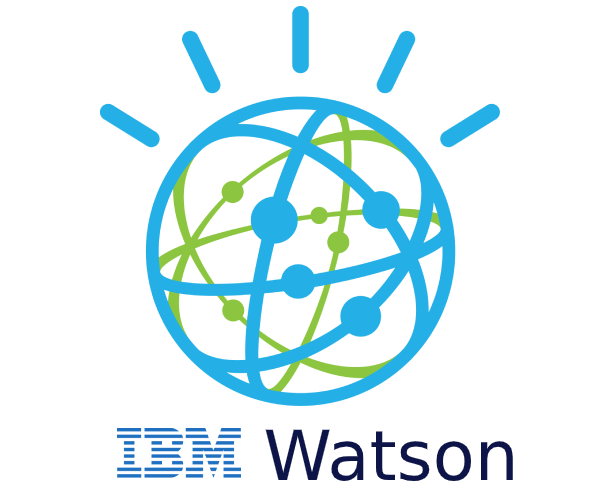IBM Watson Studio

The IBM Watson Studio: Empowering Data Science and AI Innovation:
IBM Watson Studio is a comprehensive data science platform designed to enable data scientists, developers, and business analysts to accelerate artificial intelligence (AI) development and improve the management of AI-driven applications. With its robust tools and capabilities, Watson Studio empowers users to collaborate across multiple disciplines, allowing for seamless data preparation, model development, and deployment, while managing the entire AI lifecycle efficiently. Below is an exploration of its key features, advantages, and how it fosters innovation across industries.
Key Features of IBM Watson Studio:
-
Data Preparation and Management:
- Data is the backbone of any AI initiative. Watson Studio streamlines the process of data preparation, making it easier for users to gather, clean, and organize data from various sources. The platform integrates with multiple data repositories, such as cloud storage, databases, and data lakes, enabling users to access data regardless of its location. It also offers robust tools for data cleansing and transformation, reducing the time and effort needed to prepare datasets for analysis.
-
Collaborative Environment:
- IBM Watson Studio fosters collaboration among data scientists, data engineers, and business analysts. Through shared workspaces, teams can work on projects simultaneously, with access to shared assets, code, and documentation. This collaboration extends across roles, making it easier for technical and non-technical team members to contribute to projects, enhancing both productivity and transparency.
-
Machine Learning and Deep Learning Capabilities:
- At its core, Watson Studio is powered by advanced machine learning (ML) and deep learning (DL) technologies. The platform provides a range of tools for model development, including both visual and code-based interfaces. For those with less technical expertise, Watson Studio’s AutoAI feature automatically prepares and optimizes ML models, simplifying the entire model creation process. Meanwhile, experienced data scientists can harness Jupyter notebooks, Python, R, and other programming tools to build and fine-tune custom models.
-
Scalable and Flexible Deployment:
- Once AI models are developed, deploying them at scale can be a challenge. Watson Studio addresses this by providing flexible deployment options. Models can be deployed across various environments—whether on-premises, in the cloud, or at the edge. Integration with IBM Cloud Pak for Data extends these capabilities, allowing users to scale models across hybrid and multi-cloud ecosystems, ensuring that the AI models can operate where they are needed most.
-
Model Management and Governance:
- Managing models across their lifecycle—especially in production—requires stringent governance, version control, and monitoring to ensure reliability and compliance. Watson Studio comes equipped with built-in tools to track model versions, monitor performance, and manage drift, which helps prevent degradation of AI model accuracy over time. Additionally, governance frameworks integrated into the platform help organizations ensure that their AI models adhere to industry regulations and ethical standards.
-
Explainability and Trust:
- In an era where AI decision-making must be transparent and understandable, Watson Studio provides tools for model explainability. These features allow data scientists and business users to understand how models reach their conclusions, ensuring trust in AI predictions. This is particularly important in regulated industries such as healthcare and finance, where decisions must be auditable and explainable.
Advantages of IBM Watson Studio:
- End-to-End AI Lifecycle Management:
Watson Studio supports the entire AI lifecycle, from data preparation to model building, training, deployment, and ongoing monitoring. This comprehensive approach reduces the complexity of managing disparate tools and workflows, allowing organizations to focus on delivering insights and driving business outcomes. - Integration with Open-Source Tools:
IBM Watson Studio integrates seamlessly with popular open-source tools and frameworks like TensorFlow, PyTorch, Keras, and Scikit-learn, offering flexibility to data scientists who prefer using familiar tools. This integration ensures that users can continue leveraging the best of both worlds—enterprise-grade capabilities alongside community-driven innovations. - Automation through AutoAI:
One of Watson Studio’s standout features is AutoAI, which automates the complex processes of model selection, hyperparameter optimization, and feature engineering. This significantly reduces the time it takes to develop high-performing models and makes AI accessible to a wider audience, even those without extensive machine learning expertise. - Support for Hybrid and Multi-Cloud Environments:
Many organizations operate across multiple cloud providers or have hybrid infrastructure. IBM Watson Studio’s flexibility ensures that AI models can be developed, deployed, and scaled in these diverse environments, providing businesses with the freedom to choose the infrastructure that best meets their needs.
Industry Applications of IBM Watson Studio:

IBM Watson Studio’s capabilities have wide-ranging applications across industries, helping organizations harness the power of AI to drive innovation.
- Finance:
Financial institutions use Watson Studio to develop models for fraud detection, credit scoring, and risk management. - Retail:
Retailers leverage Watson Studio to enhance customer experiences through personalized product recommendations, demand forecasting, and supply chain optimization. - Manufacturing:
In manufacturing, Watson Studio helps organizations improve predictive maintenance by analyzing data from sensors and machinery. This enables manufacturers to reduce downtime, lower maintenance costs, and enhance overall production efficiency.
Conclusion:
IBM Watson Studio is more than just a data science platform—it is an enabler of AI-driven transformation across industries.
